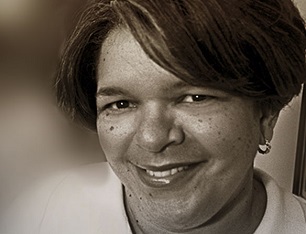December 1, 2014, marked the passing of one of the great lights in the struggle for health equity – Lark Galloway-Gilliam. Lark served as the executive director of nonprofit health advocacy organization Community Health Councils (CHC) since its founding in 1992. That year may be a familiar one to the people of Los Angeles, and that’s because CHC was started as a direct response to the civil unrest. Many of the health care establishments that burned to the ground were owned by outsiders and perceived as out of touch with the needs of the community. Lark saw the need for change and – along with several other women in the community – brought together a coalition to address health issues in South Los Angeles.
In its more than two decades of operation, Lark grew CHC into an influential advocacy organization that led efforts to eliminate disparities in health by expanding coverage, improving the health care safety net in underserved communities, increasing access to healthy and affordable foods, and most recently, improving the environment in areas with inadequate resources for healthy and active living.
Lark was a hero who fought for the underserved not only in Los Angeles and California, but across this country. She served as an innovative thinker in the public administration and nonprofit sectors for more than 25 years. She was the chair of the National REACH Coalition, a member of the Advancing the Movement Advisory Committee, and a Durfee Foundation Sabbatical Awardee. She served as chair of her local Neighborhood Council. Lark dedicated her life to social justice.
Lark attended UCLA for undergraduate studies and received a B.S. degree in Biology in 1975. Initially, she had been accepted to UC Irvine for medical school, but decided her true calling was health advocacy and received her Master of Public Administration from USC in 1997. She went on to work in hospital administration at Kaiser Permanente and Cedars Sinai Medical Center before opening a nonprofit organization. For a decade, she served as the Executive Director of Assisting the Disabled with Employment, Placement, and Training – a program that helped people with disabilities find work.
At CHC, she became to the people of Los Angeles and beyond something almost indescribable. She championed health care access, but looked for community input before making recommendations. She led CHC in studying food and nutrition resources and leveraged financial incentives to help develop a $200 million fund for grocery store development in resource-poor South LA. Under her leadership, CHC produced the South LA Health Equity Scorecard that linked public policy to inequities in health care and the environment. She broke so many barriers and so much new ground that it is impossible to list all her accomplishments. And she was always pushing herself and others to do what was right and what was best for the community. She evolved CHC as challenges grew. Just a few years ago, CHC began work in environmental health, understanding that the built environment and the policies that regulate it can be just as harmful to people as inadequate access to quality health care. In essence, she asked for – no, demanded – that every person be treated equally and given the same resources to live a healthy, happy life.
At CHC, we honor her daily by continuing to strive for the change she worked so hard to bring to her community. Lark wasn’t just a leader. She was a visionary who spoke up and gave voice to underserved populations. We honor Lark’s life and legacy with a steadfast commitment to health equity and continuing the work that we know would make her proud.
Community Health Councils will remain a voice and resource to improve health care access and coverage, to enable more community members to exercise and eat healthier, and to live in communities free from environmental hazards. Together, we can work to make our communities healthy, happy, and as vibrant as ever.

